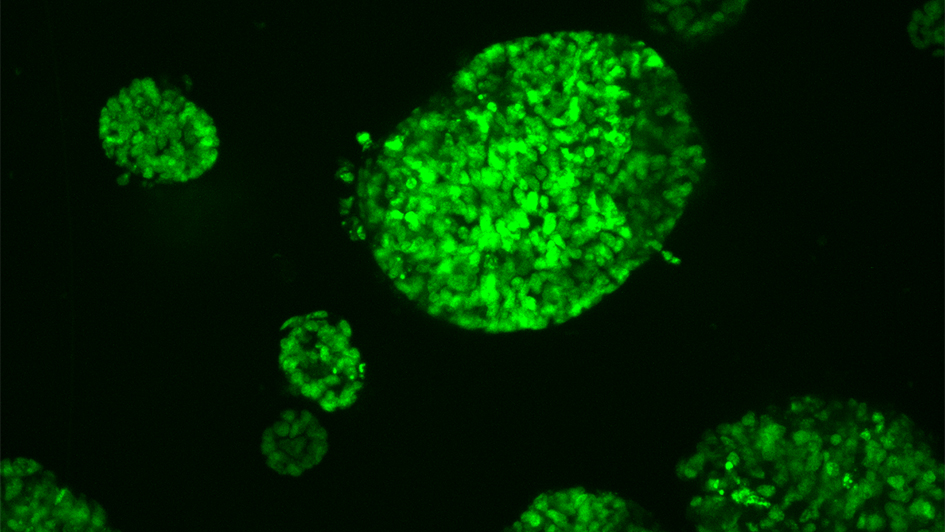Scientists from The Institute of Cancer Research, London, are part of a team of international researchers who have secured £5.5million in funding to find smarter, kinder treatments for people living with bowel cancer.
The Colorectal Cancer — Stratification of Therapies through Adaptive Responses (CRC-STARS) initiative will bring together 40 research experts from across the UK, Spain, Italy and Belgium to find personalised treatments for the disease, which kills 16,800 people in the UK every year. Joining forces will enable them to use their combined expertise across multiple research areas, and pair clinical trial data with cutting-edge technology.
Personalising bowel cancer treatments
Bowel cancer, also known as colorectal cancer, is the second most common cause of cancer deaths in the UK. Despite this, treatment options remain limited, particularly for patients who are diagnosed at later stages of the disease.
The researcher team aim to better understand how different bowel cancers respond to current treatments, why certain bowel cancers spread, and whether they can predict which treatments will work for individual patients.
Personalised medicine involves using detailed information about a person’s cancer – not just the part of the body where the cancer started - to help with decisions about diagnosis and treatment.
While some patients are already benefitting from this type of treatment, such as people with certain types of breast cancer, it is an area still very much in development. The CRC-STARS team will work together to learn even more about how bowel cancer behaves so that it can potentially be treated in a more personalised way in the future.
Understanding bowel cancer evolution
The ICR team will be led by Professor Trevor Graham, Professor of Genomics and Evolution and Director of the ICR’s Centre for Evolution and Cancer. Professor Graham will lead the genomic and epigenomic analysis of bowel cancer as it evolves during treatment prior to surgery. The aim is to understand how treatment changes bowel cancer, to identify ways that cancer adapts to treatment and to find ways to prevent this in future.
The CRC-STARS team will be co-led by Professor Owen Sansom (Cancer Research UK Scotland Institute), Professor Jenny Seligmann (University of Leeds) and Professor Simon Leedham (University of Oxford).
Funding for the CRC-STARS initiative
CRC-STARS is jointly funded by Cancer Research UK, the Bowelbabe Fund for Cancer Research UK, philanthropic support from Bjorn Saven CBE and Inger Saven, and the Scientific Foundation of the Spanish Association Against Cancer (FC-AECC.
The Bowelbabe Fund for Cancer Research UK was set up to continue the inspiring legacy of Dame Deborah James who was diagnosed with bowel cancer in 2016 at the age of 35. Launched in the last few weeks of her life and now stewarded by her family, together with Cancer Research UK, it works to fund cutting-edge research, raise awareness of signs and symptoms of cancer with the aim of helping give more people affected by cancer more time with the people they love.
Additional financial support for CRC-STARS includes a £1m commitment from Bjorn Saven CBE and Inger Saven. Bjorn is an industrialist, investor, and philanthropist. Inger is a Trustee of The Mentor Foundation, an international non-profit development organization working to help young people find a path towards a promising future.
The FC-AECC is also contributing €600,000 (~£500,000) to specifically support the work of the researchers based in Spain. The team of researchers will work on combining experimental, pre-clinical and clinical data to predict cancer progression and tailor new therapeutic approaches specific to each patient's characteristics. The aim is to prevent the development of drug resistance and improve the response to treatments such as chemotherapy and immunotherapy, hopefully improving the effectiveness of colorectal cancer treatments.
Keeping cancer at bay for longer
Professor Trevor Graham, Professor of Genomics and Evolution and Director of the Centre for Evolution and Cancer at The Institute of Cancer Research, London, said:
“One of the biggest challenges we face when treating cancer is that cancers can adapt and evolve, and stop responding to treatment. Understanding this evolution might reveal vulnerabilities that can be targeted, so that we can keep people’s cancer at bay for longer. In STARs I will be looking at the changes that happen in bowel cancers that have been treated with chemotherapy before being removed by surgery; I hope what we find there will help us understand how to use chemotherapy better for all stages of bowel cancer.”
Michelle Mitchell, Chief Executive of Cancer Research UK, said:
“For over 100 years, Cancer Research UK-funded scientists have been working to beat bowel cancer, and this project is one of the most comprehensive for bowel cancer that we have ever supported.
“Together with our funding partners – the Bowelbabe Fund, Bjorn and Inger Saven and the FC-AECC – we can empower the CRC-STARS team to speed up the development of personalised treatment for people living with bowel cancer, bringing us closer to a world where people live longer, better lives, free from the fear of cancer.”
Dr Marta Puyol, Scientific Director at the FC-AECC, said:
“This project will not only help us better understand the landscape of bowel cancer in a collaborative and multidisciplinary manner, but will also allow us to place a strong emphasis on patient needs, accelerating the translation of results into clinical practice.”
Professor Owen Sansom, Director of the Cancer Research UK Scotland Institute and CRC-STARS research co-lead, said:
“Step by step, day by day, we’re discovering new ways to prevent, detect and treat bowel cancer and save lives. The support we’ve received from our funders will allow us to take bold steps towards better understanding bowel cancer and how to beat it.”
